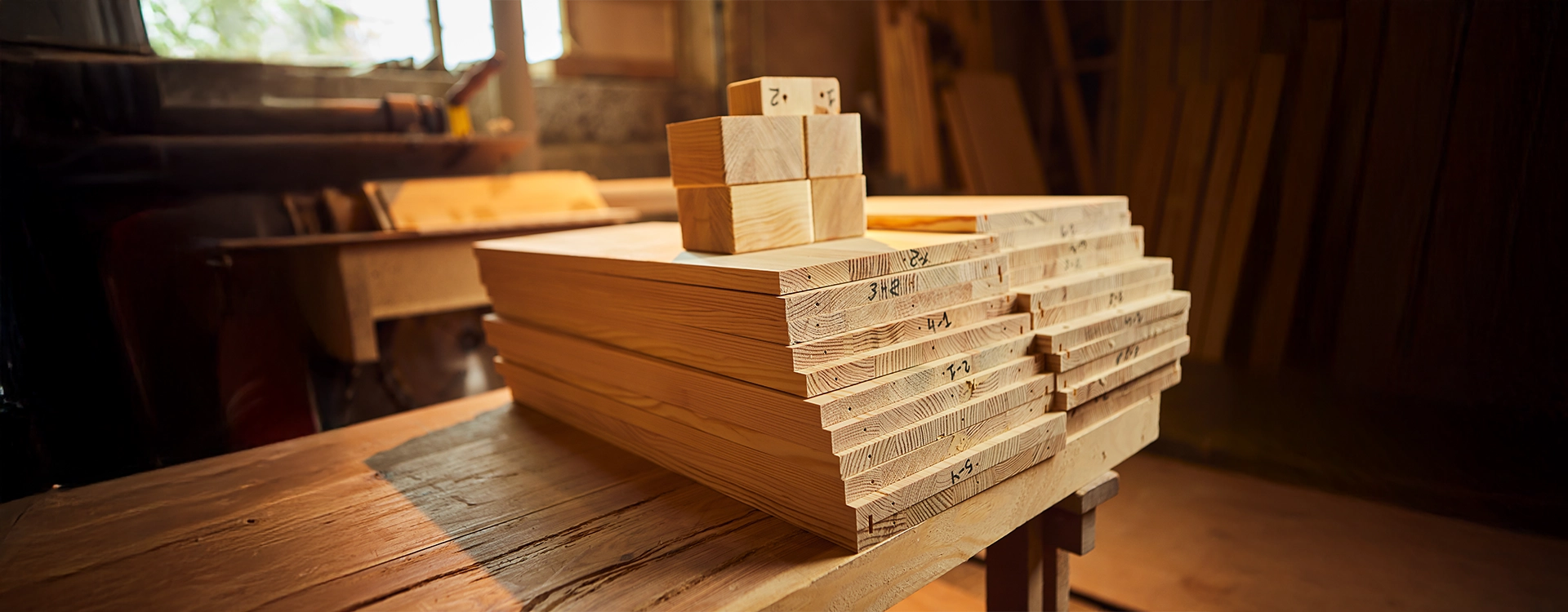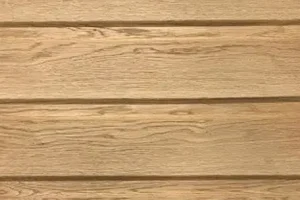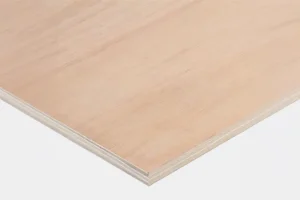How to Identify Quality Timber: A Simple Checklist
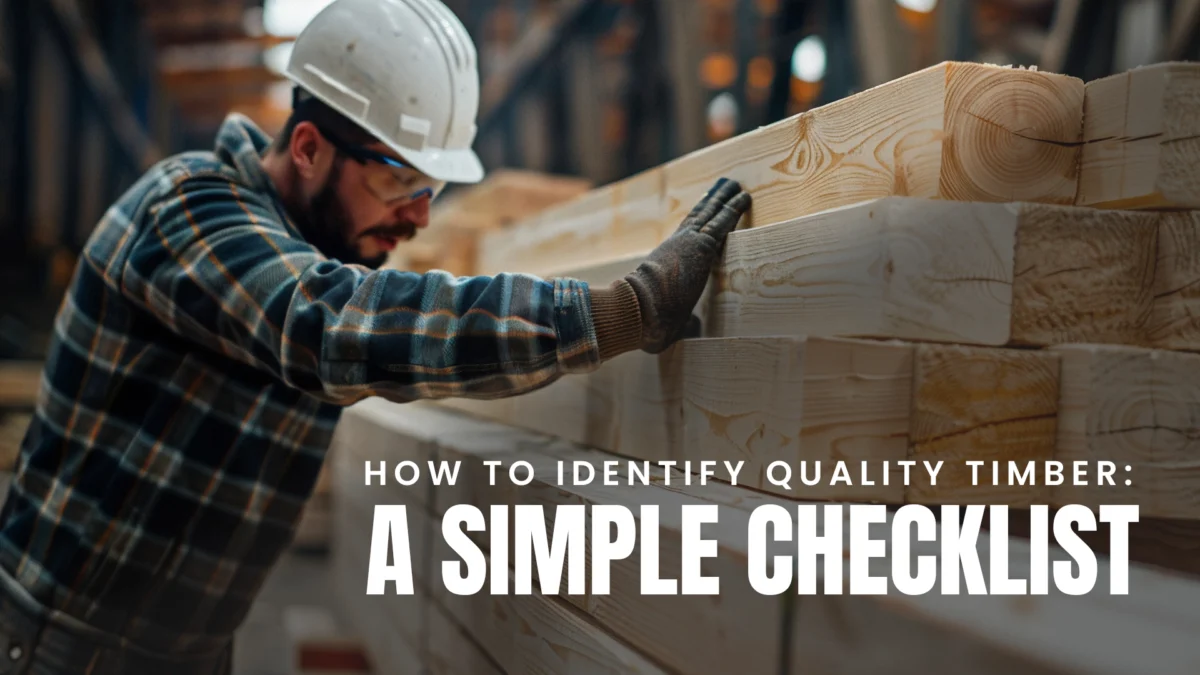
Timber is one of the most versatile and sustainable building materials available today. Whether you’re constructing a home, renovating a space, or selecting furniture, choosing quality timber products is essential to ensure durability, strength, and longevity. This guide provides a simple checklist to help you identify quality timbers and make informed decisions when purchasing timber in Australia.
Understanding the Importance of Quality Timber
Choosing high-quality wood is crucial for structural integrity, aesthetic appeal, and long-term sustainability. Poor timber selection can lead to structural failures, costly repairs, and environmental concerns. By following a quality timber checklist, you can ensure that you’re investing in durable and sustainable materials.Key Factors in Identifying Quality Timber
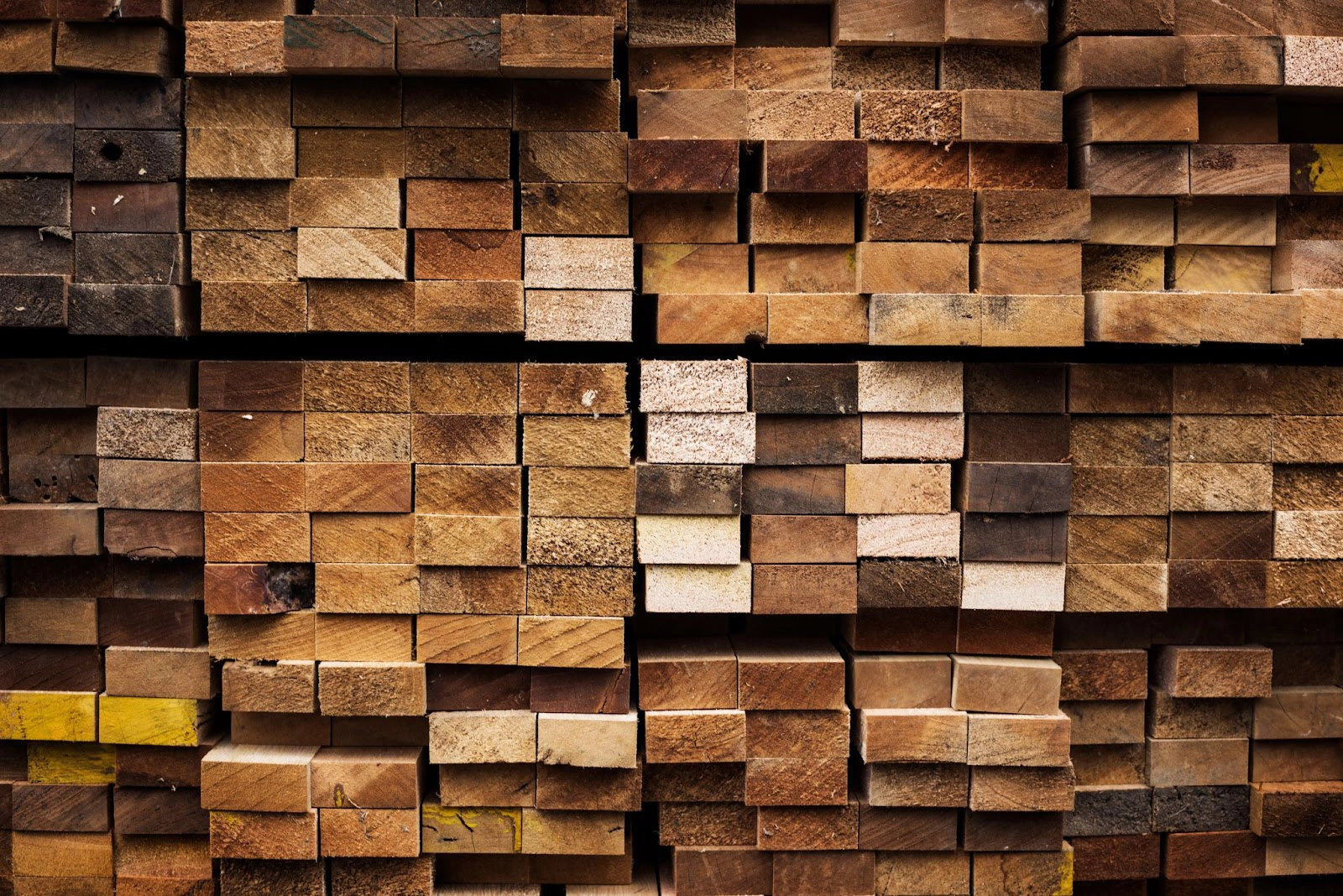
1. Timber Grading Standards Explained
Timber is classified based on grading standards that determine its strength, durability, and suitability for various applications. Understanding these standards helps you choose graded lumber that meets your specific needs.Australian Timber Grading System
- Structural timber is graded into MGP (Machine Graded Pine) categories (MGP10, MGP12, MGP15) based on strength.
- Appearance-grade timber is classified for aesthetic appeal rather than strength.
- Hardwoods and softwoods are further categorized based on their intended use and durability.
2. Signs of Durable and Strong Timber
When selecting timber, look for these key indicators of strength and durability:- Tight grain patterns – Indicate slow-growing, high-density timber.
- Minimal knots and defects – Reduce weak points in the wood.
- Straightness – Warped or bowed timber may cause issues in construction.
- High weight-to-volume ratio – Denser timber generally has better durability.
3. Timber Defects and How to Spot Them
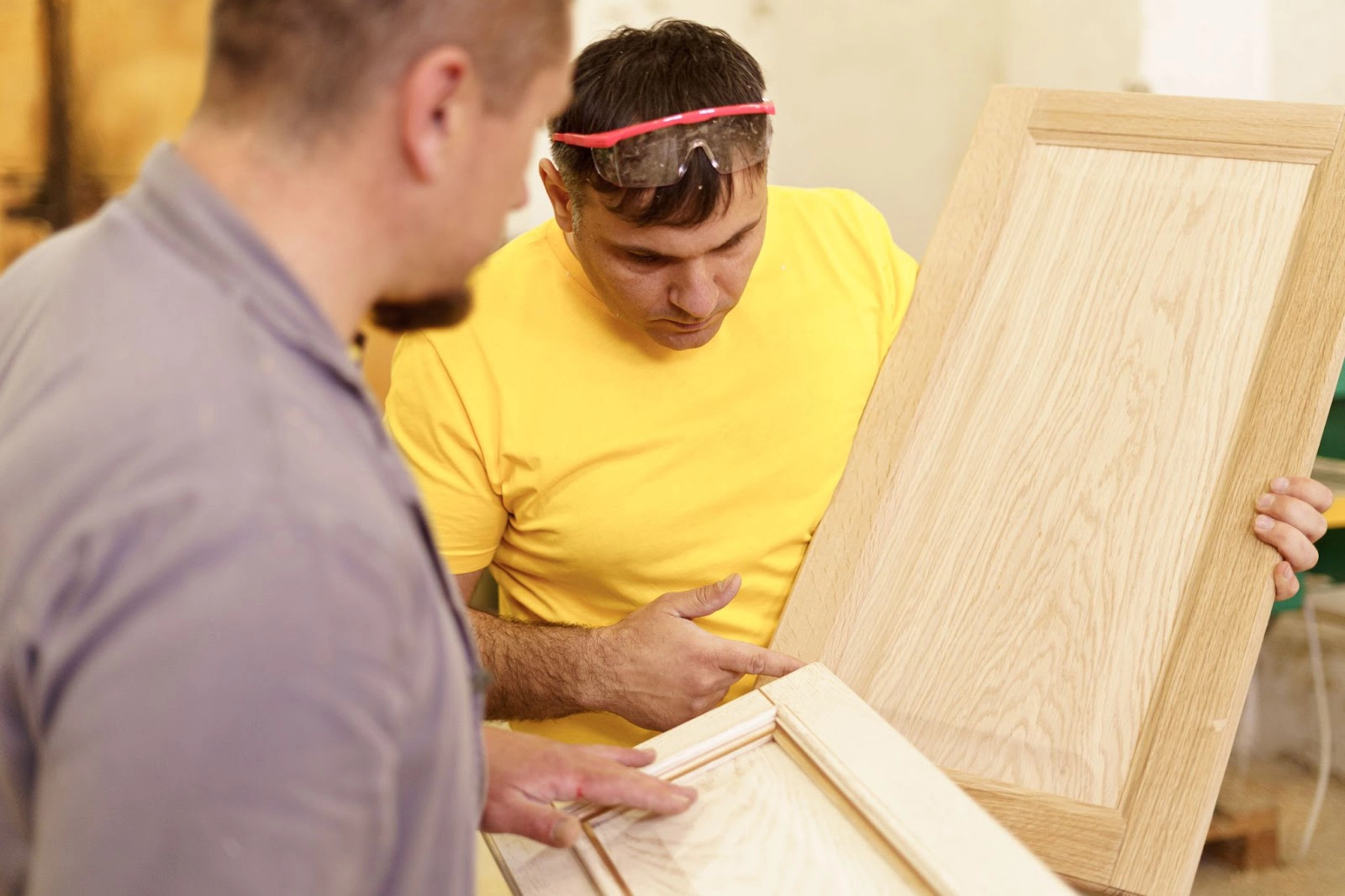 Identifying defects in timber is critical to ensure quality. Common defects include:
Identifying defects in timber is critical to ensure quality. Common defects include:
- Knots – Can weaken the timber if excessive.
- Splits and cracks – Reduce structural integrity.
- Warping and bowing – Make timber difficult to work with.
- Insect damage – Indicates past or present infestations.
4. How to Test Timber Strength and Durability
Before purchasing timber, conduct these simple tests:- Visual Inspection: Check for uniformity, color consistency, and absence of defects.
- Density Check: Heavier timber is generally denser and more durable.
- Sound Test: Tap the timber; a clear ringing sound suggests solid wood, while a dull sound may indicate internal defects.
- Moisture Content Test: Use a moisture meter to ensure the timber is adequately dried to prevent shrinkage and warping.
5. Identifying Sustainable and Eco-Friendly Timber
Sustainability is a key consideration when selecting timber. Look for certifications such as:- Forest Stewardship Council (FSC) – Ensures responsible forest management.
- Programme for the Endorsement of Forest Certification (PEFC) – Promotes sustainable forestry practices.
- Australian Forestry Standard (AFS) – Recognizes sustainable Australian timber sources. Choosing products from timber that meet these certifications helps reduce environmental impact and supports responsible forestry.
Benefits of Choosing Quality Timber
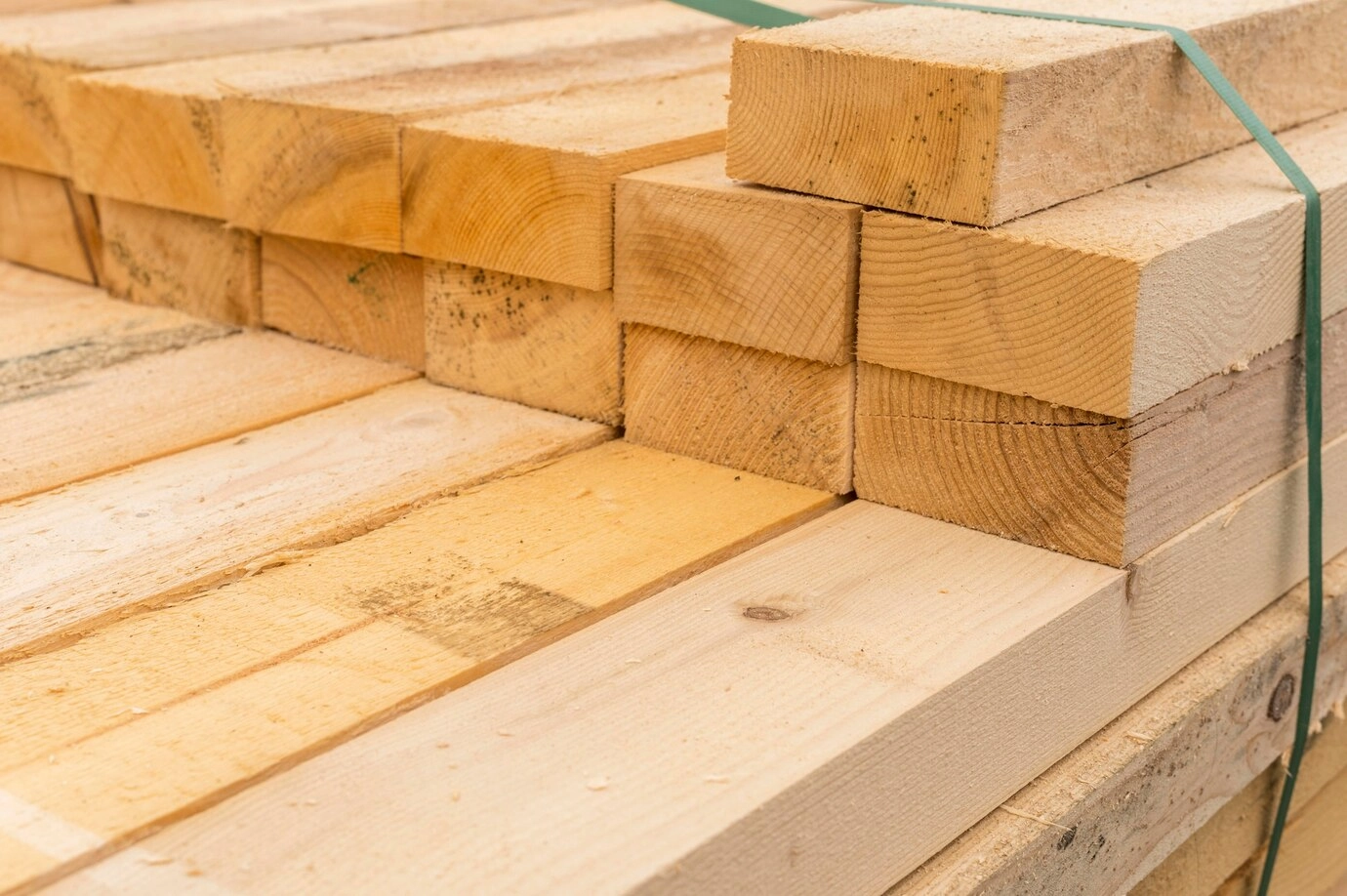
Economic Advantages
- Long-lasting quality timber products reduce the need for frequent replacements.
- Higher resale value for properties constructed with premium timber.
Environmental Benefits
- Sustainable timber production helps reduce carbon footprints.
- Renewable and biodegradable, making timber an eco-friendly choice.
Aesthetic and Structural Superiority
- Well-graded timber enhances the beauty and strength of construction projects.
- High-quality finishes and textures improve design aesthetics.
Conclusion
Selecting quality timber involves understanding timber grading standards, identifying defects, testing for durability, and ensuring sustainability. By following this quality timber checklist, Australian buyers can make informed decisions and invest in superior materials. Whether you are sourcing timber for construction, furniture, or decorative applications, always prioritize quality and sustainability.
For premium timber options, visit Melbourne Timber Supplies , your trusted supplier of high-quality, sustainable timber products.

